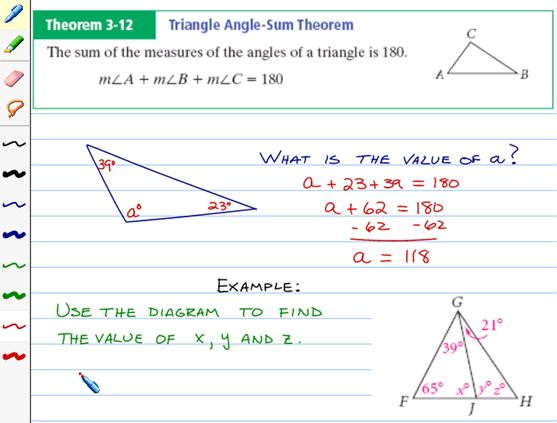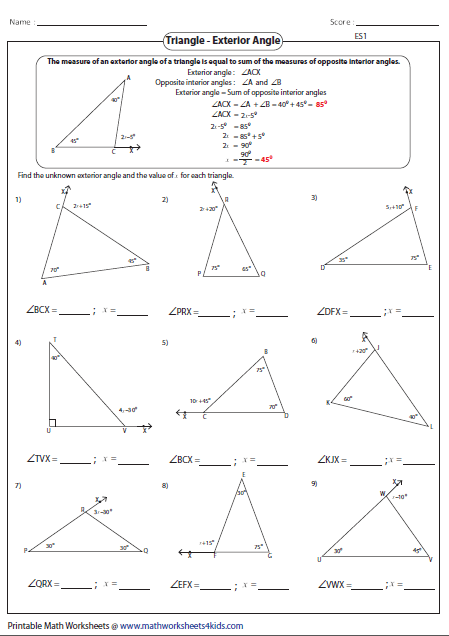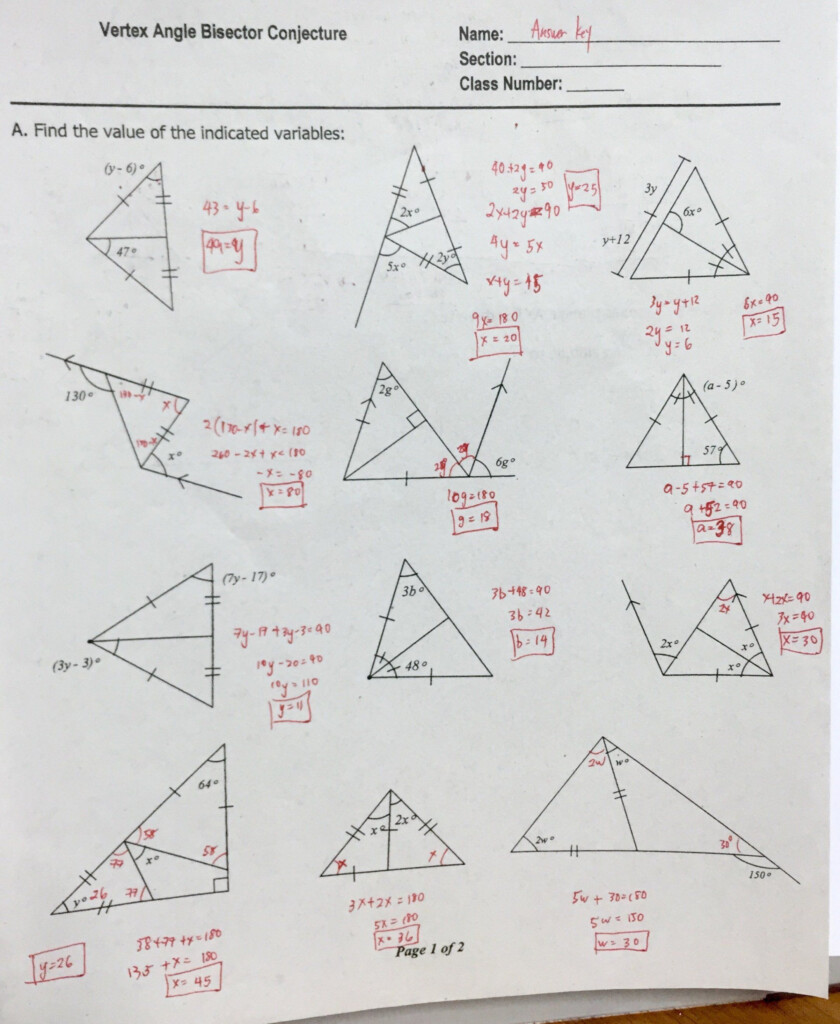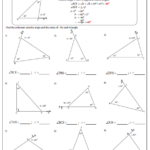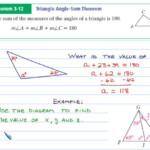Pearson 3-3 Worksheet Triangle Angle-sum Theorem – This article will discuss Angle Triangle Worksheets as well as the Angle Bisector Theorem. In addition, we’ll talk about Isosceles and Equilateral triangles. You can use the search bar to locate the worksheet you are looking for if you aren’t sure.
Angle Triangle Worksheet
This Angle Triangle Worksheet teaches students how to measure angles. It is composed of 12 different triangles, each with a given angle. The other two angles are represented by an algebraic expression, such as x + 5. Students can use this worksheet to solve the sum of interior angles of triangles. You will also find sample questions in the worksheet.
The Angle Triangle Worksheet can be used for both basic and advanced mathematics. Its main focus is to teach students the interior and exterior angles of triangles. It also features space for a teacher’s answer sheet, so that students can check their answers.
Angle Bisector Theorem
These worksheets help students learn how to find the angle bisector of a triangle. These worksheets are great for students in the fifth and eighth grades. Each worksheet has 20+ questions. Each worksheet contains 20+ questions. To ensure accuracy, arcs drawn for a perpendicular bisector should be drawn lightly, but they must be visible in the final answer. You can also use a sharp pencil or a pencil with a small compasses to get an accurate result.
The Angle Bisector Theorem, a mathematical principle, states that any point on a bisector must be equal to each angle it cuts. This principle can be illustrated with a diagram that has a yellow segment and a green segment. These segments have equal lengths.
Equilateral triangles
Equilateral triangle worksheets are an excellent way to improve students’ math skills. These exercises, which are usually short, contain word problems and illustrations that help students understand the fundamentals of the triangle. These worksheets also help students develop their calculative skills. For example, one equilateral triangle worksheet requires high school students to work out the side lengths of a triangle as integers.
An equilateral triangle has three sides and three angles of equal length. Multiply the lengths of each side by three to find the perimeter or area of an equilateral triangular triangle.
Triangular isosceles
Isosceles triangles can be difficult to calculate, especially for young students. There are helpful worksheets that will help students understand the concept. These worksheets contain word problems and illustrative exercises that teach students how to figure out the area of a triangle using known values. These worksheets can be used by middle- and high school students.
If the angles are equal, a triangle is an isosceles form. The third angle in this example is 40 degrees. By figuring out the sides of the triangle, we can solve its equation.
Triangle Sum Theorem
Angle Triangle Sum Theorem worksheets are designed to teach students how to calculate the interior angles in triangles. Students will need to identify the unknown angles within a triangle, and then calculate the sum. These worksheets also include space for students to write a message or special instruction.
This worksheet teaches students that the sum of the interior angles of triangles always equals 180 degrees. This worksheet also helps students build equations because the interior angles for triangles always add up to 180 degrees. It includes examples and solutions for solving different kinds of triangles. This worksheet is for 6th through high school students.
Aside from interior angles, there are other types of triangles, such as right triangles and convex polygons. Students will learn how to tell if a triangle is acute or right-angled in this lesson. In addition, they learn how to find the interior angles and the exterior angles of triangles.
